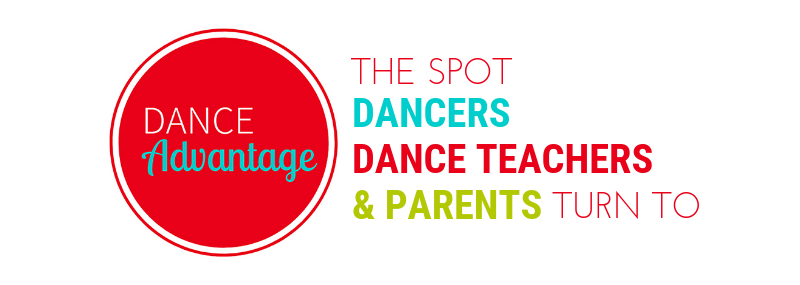 If you are planning on majoring, minoring, or even just participating in a university dance department in the next year, you are probably nervous and excited about beginning your adventure in higher learning. Having been involved in two different liberal arts programs, coming out the other side with a dance degree in hand, and going on to teach in yet another dance department, I thought it may be a good idea to share my experiences, advice, and thoughts to help you prepare for what is ahead. I will divide the information into categories for easier reading. Feel free to post questions if you have any or, comments if you have something to add. You can also e-mail me if you’d like to ask something but prefer not to post.
If you are planning on majoring, minoring, or even just participating in a university dance department in the next year, you are probably nervous and excited about beginning your adventure in higher learning. Having been involved in two different liberal arts programs, coming out the other side with a dance degree in hand, and going on to teach in yet another dance department, I thought it may be a good idea to share my experiences, advice, and thoughts to help you prepare for what is ahead. I will divide the information into categories for easier reading. Feel free to post questions if you have any or, comments if you have something to add. You can also e-mail me if you’d like to ask something but prefer not to post.
Technique Classes
If you are a dance major it is probably because you like to dance! This is your chance to do so. Typically all dancers in a university program are at minimum required to take a ballet and modern technique class each semester. Chances are, even if you did not have to audition to be accepted into the dance program at your school, you will probably have to take a placement class in which one or more of the faculty decide the class level for which you are best suited. Don’t be discouraged if after training since the age of 3, you are still entered into the level one classes – this is quite normal. Even students who transfer from one program to another are sometimes placed at these entry levels in their new school. This brings me to…
- Tip #1: Trust the faculty’s judgment. They want you to succeed. Their years of training, education, and experience should not be discounted. Unless you truly feel they are putting you at risk mentally or physically (in which case, seek higher authority), give their ideas and opinions a chance.
Technique classes are generally worth only one or two credits so that a regular full-time student can take more than one and still maintain a typical full-time credit load (12-15 credits). While there are occasional written assignments or requirements for attending a concert, etc., a high percentage of your grade in a dance class is usually determined by your attendance record. This means you have to show up and be prepared to do the work to get a decent grade in the class. Seems easy enough, right? Well, for students who are perhaps relishing their first taste of freedom from parental supervision, getting to class is sometimes a surprisingly low priority (never mind the condition in which they arrive). Late nights studying, hanging out, partying, internet surfing, etc. with no one to tell you to get to bed, coupled with a 9am ballet class… you get the picture.
- Tip #2: Find a balance. The point is that there are LOTS of things in college life that distract students from their primary purpose (succeeding at getting an education). You don’t have to abstain from all of the lovely little distractions. However, accept the responsibility that comes with your new-found freedom and be mature enough to recognize when your schoolwork is suffering (without blaming it on your teachers) and then make lifestyle changes or take steps to correct the problem. In fact, apply this to situations in general… from now on.
Rehearsals
Unlike many of your fellow college students, you will probably find yourself heavily involved in dance activities that don’t necessarily earn you credits but, are nonetheless, worth it or even required. Many of these activities will result in performances both formal or informal which, like taking class, has a lot to do with why you bought your ticket for this ride in the first place. Particularly as an underclassmen, you may find yourself auditioning in front of and for upperclassmen who are looking for guinea pigs for their own choreography. At my alma mater for example, there was an entire process dedicated to the auditioning, presenting, adjudicating, and performing of undergraduate works. Once dancers were cast, the student choreographers scheduled rehearsal time (for whenever and wherever space was available – racquetball courts, anyone?) and later presented their work in progress to faculty several times. By the final showing, dances were chosen for a final year-end performance and those that didn’t make the cut were offered a slot in less formal performances. I’m sure every university has a slightly different process and a variety of opportunities – faculty concerts, composition (choreography) class projects, off-campus or community outreach efforts. You may not always be cast as a performer. However, there may be other ways you can take part. Although disappointing at first, not being cast in my first major college production resulted in one of the most beneficial learning experiences of my student career when I instead stage-managed the performance. Taking a backstage role is a great way to learn about the craft of production and will be of value to you in the future when you create your own choreography, manage a dance company, or run a dance studio.
- Tip #3: Get Involved. It may cut into your social life but these experiences are worth participating in any way that you can. Don’t put all your eggs in one basket by skipping the “smaller” stuff and waiting to audition for the “big” show. You may find yourself disappointed and not participating in anything. Likewise, don’t limit what you take part in because of self-doubt, insecurities, or even department politics. You may be surprised at what other opportunities your participation yields.
- Tip #4: In all things, be professional. You are preparing for a professional life ahead (even if it is not a professional life in dance) and, although you may think “it’s just college” or “the choreographer’s a student too” or “this is a stupid assignment, anyway,” remember that reputations have a tendency to follow one around. If you are consistently late, stressed, show up ill-prepared or unable to dance, display attitude, or give less than 100% effort, word will get out among the other students and faculty. And while, the reputation may not always make it beyond your collegiate walls, your lack of experience (because people avoided casting you) will speak for itself on a resume.
Check out these great Five Tips for College Freshmen.
Then, read on to Part II…
Nichelle Suzanne is a writer specializing in dance and online content. She is also a dance instructor with over 20 years experience teaching in dance studios, community programs, and colleges. She began Dance Advantage in 2008, equipped with a passion for movement education and an intuitive sense that a blog could bring dancers together. As a Houston-based dance writer, Nichelle covers dance performance for Dance Source Houston, Arts+Culture Texas, and other publications. She is a leader in social media within the dance community and has presented on blogging for dance organizations, including Dance/USA. Nichelle provides web consulting and writing services for dancers, dance schools and studios, and those beyond the dance world. Read Nichelle’s posts.

